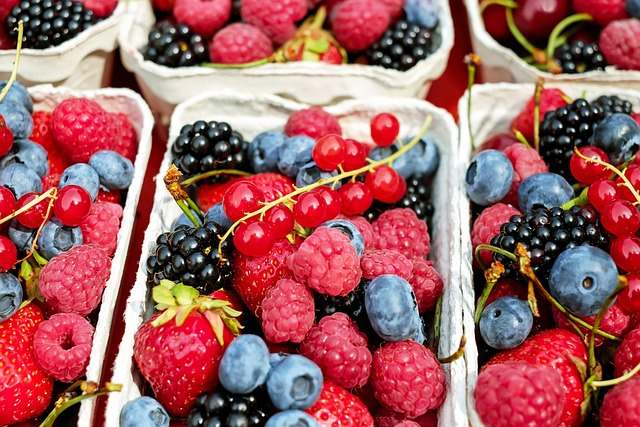When it comes to maintaining a healthy gut, probiotics are gaining popularity. These live bacteria and yeasts can provide numerous health benefits, from improving digestion to boosting the immune system. While yogurt is often the go-to food for probiotics, there are plenty of other options available. In this article, we will explore the world of probiotic-rich foods beyond yogurt.
Kefir
Kefir is a fermented milk drink that is becoming increasingly popular for its probiotic content. It is made by adding kefir grains to milk, which contain a combination of yeasts and bacteria. The fermentation process results in a tart and tangy beverage that can be consumed on its own or used in smoothies and other recipes. Kefir is highly nutritious and packed with calcium, protein, and other essential nutrients. It is also well-tolerated by those who are lactose intolerant as the bacteria in kefir help break down lactose.
Sauerkraut
Sauerkraut, a type of fermented cabbage, is another probiotic powerhouse. During the fermentation process, lactic acid bacteria convert the natural sugars in cabbage into lactic acid. This creates a tangy and crisp condiment that is not only rich in probiotics but also high in vitamins C and K. Incorporating sauerkraut into your diet can support digestive health, improve immune function, and even help with weight loss.
Miso
Miso is a traditional Japanese seasoning made by fermenting soybeans with salt and a specific fungus called Aspergillus oryzae. The fermentation process can take anywhere from a few days to several years, resulting in different varieties of miso with varying flavors. Miso is commonly used in soups and dressings and is a great source of probiotics. It is also rich in antioxidants and B vitamins, making it a nutritious addition to your diet.
Tempeh
Tempeh is a protein-rich food made from fermented soybeans. The beans are cooked and then fermented with a starter culture, usually a specific strain of bacteria called Rhizopus oligosporus. This fermentation process makes tempeh easier to digest and increases its nutrient content. Tempeh has a nutty flavor and a firm texture, making it a versatile ingredient for various dishes, from stir-fries to sandwiches. It is an excellent source of probiotics, protein, and other essential nutrients.
Kombucha
Kombucha is a slightly fizzy, fermented tea drink that has gained significant popularity in recent years. It is made by fermenting sweetened tea with a SCOBY (symbiotic culture of bacteria and yeast), which creates a tangy and effervescent beverage. Besides being a source of probiotics, kombucha is also packed with antioxidants and organic acids that can have detoxifying and anti-inflammatory effects. However, it is essential to choose varieties with low added sugar content to fully enjoy its health benefits.
Kimchi
Kimchi is a traditional Korean side dish made from fermented vegetables, usually cabbage and radishes. The fermentation process gives kimchi its distinctive tangy flavor and improves its shelf life. Kimchi is not only a delicious addition to meals but also a fantastic source of probiotics. It contains a diverse range of bacteria strains, which can promote gut health and improve digestion. Additionally, kimchi is rich in vitamins A, C, and K, as well as antioxidants.
These are just a few examples of probiotic-rich foods that go beyond yogurt. By incorporating these options into your diet, you can support a healthy gut and improve your overall well-being. So, next time you’re looking to amp up your probiotic intake, consider exploring these diverse and delicious alternatives.







